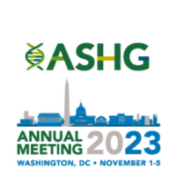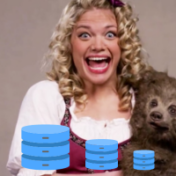We’re buzzing with excitement and couldn’t wait to share some groundbreaking news with our community: VarSeq 2.5.0 has officially landed, and it’s here to transform your NGS lab experience! What’s New with VarSeq 2.5.0? VarSeq has always been about innovation and pushing the boundaries, and the 2.5.0 update is no exception. We’ve listened to your feedback and supercharged VarSeq with… Read more »
It may come as a surprise to our long-standing users that the multi-allelic import and representation in VarSeq is slated to have different import options with the 2.5.0 upgrade. As the software grows and evolves, we strive to meet the changing needs of our users, and this is one area where an update was sorely needed. Before going into an… Read more »
Calculating Residual Risk Residual risk is the risk remaining after a negative screening test. At the core of the calculation of residual risk resides Bayes’ Theorem. This theorem is used to calculate the probability of an outcome given the probability of events required for that outcome. The probability of the required events is compounded to calculate the combined probability of… Read more »
In the ever-evolving field of genetics, the quest to understand the intricate dance between genetic predispositions and disease manifestations continues to gain momentum. The three research papers presented here offer a glimpse into this complex interplay, each exploring the genetic underpinnings of distinct medical conditions across species. From the debilitating effects of acute retinal necrosis in humans to the life-threatening… Read more »
Last month, the researchers at Google DeepMind announced the release of AlphaMissense, a new missense prediction algorithm that leverages the protein structure prediction model AlphaFold to distinguish between benign and pathogenic missense variants (Cheng et al., 2023). AlphaFold is a model for the prediction of protein structures from amino acid sequences. During the development of AlphaMissense, the AlphaFold model was… Read more »
Explore the Newest Developments in Variant Classification and Interpretation Tools at Booth 506 at ASHG 2023 Join Golden Helix at the American Society of Human Genetics (ASHG) 2023 conference and delve into the latest advancements in genetic research. This esteemed event brings together distinguished researchers, clinicians, and industry frontrunners to exchange knowledge on the most recent insights in human genetics…. Read more »
As the global biotech community converges on Yokohama for BioJapan 2023, we are thrilled to announce that Golden Helix will be exhibiting at Booth D55. This premier event offers a unique opportunity for industry leaders, researchers, and professionals to come together, collaborate, and drive the future of biotechnology. And for us, it’s a chance to showcase how Golden Helix is… Read more »
Recent advancements in medical research have been pivotal in deepening our understanding of a variety of health conditions. The utilization of tools such as VarSeq in these studies allows for comprehensive genomic analyses, thereby ensuring more accurate diagnoses and facilitating the development of targeted treatments. This bloghighlights three recent publications that have utilized VarSeq to unravel the mysteries of different… Read more »
Recently, a Golden Helix customer reached out to support for advice on how to validate the variant scoring between two different VarSeq users. Here we break down one possible solution as an opportunity to showcase the utility of both the Latest Sample Assessment function and an alternative way to leverage the Compute Fields function. To set up this validation project,… Read more »
Pharmacogenomics Workflow: Identifying Biomarkers and Treatment Options BOZEMAN, Mont. – Sep. 26, 2023 – Golden Helix, Inc. announced that it was awarded the NIH SBIR Grant 1R43HG013456-01 “Pharmacogenomics Workflow: Identifying Biomarkers and Treatment Options.” Personalized medicine leveraging pharmacogenomics is gaining momentum to optimize drug choice, dosage, efficacy, and safety for individual patients. This grant allows Golden Helix to research pharmacogenetics… Read more »
Traditionally genetic tests in cancer have focused on small gene panels that restrict their analysis to a small number of well-studied cancer genes. However, as sequencing costs have decreased, many clinical laboratories have embraced comprehensive genomic profiling tests that rely on whole exome and whole genome next-generation sequencing (NGS) workflows, which can detect millions of high-quality variants for a single… Read more »
Golden Helix Inc. celebrates 25 years as a leader in the genomics landscape. Built on solid Montanan values of work ethic and reliability, our journey began with Dr. Christophe Lambert’s vision in 1998. Our early triumphs in Genome-Wide Association Studies set the stage, but 2013 brought a transformative shift. Under Dr. Andreas Scherer’s leadership, we ventured into the clinical arena… Read more »
Your variants of interest have been identified, the SVs annotated, and the CNVs classified. Once the manifest has been imported (and here is a great blog on the subject), the last step is to bring all of this information into a report template! In this blog, we will go over some simple report modifications and provide resources for more information… Read more »
Detecting CNVs from whole genome data has a number of advantages but also unique challenges. Whole genomes offer a comprehensive and uniform picture of the entire genome, allowing a user to capture CNVs at a higher resolution than with data sequenced at a lesser scale. It also allows for the detection of structural variation over non-coding regions and for a… Read more »
…so we added some automation to your automation so you can automate while you automate! Automation has been a hot topic recently and for all the right reasons. As we (proudly) watch our customers increase their sample and data volume, we are constantly seeking to provide tools to reduce click rate and optimize throughput. Furthermore, with all of the new… Read more »
Recently, we have written a couple of blogs that were talking about the use of Evaluation Scripts in VSClinical workflows, in particular for the AMP workflow. Evaluation scripts were first introduced to VSClinical AMP in VarSeq 2.3.0 and VarSeq 2.4.0 welcomed evaluation scripts to the ACMG Workflow. Evaluation scripts are a nifty way to customize your workflow and say import… Read more »
In an era where genetics is reshaping our understanding of diseases, recent customer research publications offer invaluable insights, particularly in the realm of cancer. A study titled “Co-Occurrence of Germline Genomic Variants and Copy Number Variations in Hereditary Breast and Colorectal Cancer Patients” dives into a rare phenotype bridging hereditary colorectal and breast cancer syndromes, revealing the profound impact of… Read more »
Variant interpretation is a critical aspect of any clinical NGS workflow. VarSeq assessment catalogs are a tool used to save variants and associated variant information for easy tracking and retrieval of completed variant interpretations. As variant interpretations stack up and classifications are saved, storing in assessment catalogs makes it easy to automatically fill in a previous interpretation if the variant… Read more »
When interpreting fusions in their VCF format, it is not easy immediately grasp which side of the positions are adjacent in the resulting fusion. When interpreting and troubleshooting fusion variants, I usually find myself reaching for the VCF spec. If you, like me, are looking to speed up this process and gain a quick understanding of the fusions in your… Read more »
With the widespread adoption of next-generation sequencing for clinical and research applications comes the need for guidance and recommended standards and best practices for achieving accuracy and efficacy for each assay pipeline. The support team at Golden Helix has gotten a lot of hands-on experience in assisting users to build their bioinformatics workflows for NGS assays. We recently shared our… Read more »



















